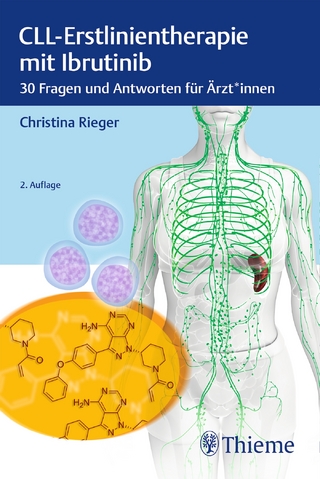
Biological Basis of Alcohol-Induced Cancer
Springer International Publishing (Verlag)
978-3-319-09613-1 (ISBN)
Vasilils Vasiliou, Ph.D., is a Professor of Molecular Toxicology and Director of the Toxicology Graduate Program at the University of Colorado in Denver. He is a reviewer for several journals including Alcohol & Alcoholism, Cancer Letters, International Journal of Cancer. Dr. Vasiliou is also the Editor of the journal, Human Genomics, and also serves on the Editorial Board of several journals, including Journal of Pharmacology and Toxicology. He is a co-editor of Springer publication, Alcohol and Cancer. Samir Zakhari, Ph.D., is the Senior Vice President of Science at the Distilled Spirits Council of the United States. Prior to Dr. Zakhari's current position, he was the Director of Basic Research at the National Institute on Alcohol Abuse and Alcoholism at the NIH. He is a co-editor of Springer publication, Alcohol and Cancer. Helmut K. Seitz, MD, is a Distinguished Professor of Medicine, Gastroenterology, and Alcohol Research at the University Heidelberg. He is also the Director of the Salem Medical Center at the University of Heidelberg. Jan B. Hoek, Ph.D., is a Professor of Pathology, Anatomy, and Cell Biology, as well as Vice-Chair of Research at Thomas Jefferson University.
Introduction.- Alcohol and breast cancer: Reconciling epidemiological and molecular data.- Genetic-epidemiological evidence for the role of acetaldehyde in cancers related to alcohol drinking.- Alcohol and Cancer: an Overview With special Emphasis on the Role of Acetaldehyde and Cytochrome P-4502E1.- Implications of acetaldehyde-derived DNA adducts for understanding alcohol related carcinogenesis.- The role of iron in alcohol-mediated hepatocarcinogenesis.- Alcoholic Cirrhosis and Hepatocellular Carcinoma.- TLR4-dependent tumor-initiating stem cell-like cells (TICs) in alcohol-associated hepatocellular carcinogenesis.- Synergistic Toxic Interactions Between CYP2E1, LPS/TNF and JNK/p38 MAP Kinase and their Implications in Alcohol-induced Liver Injury.- Understanding the tumor suppressor PTEN in chronic alcoholism and hepatocellular carcinoma.- Alcohol consumption, Wnt/b-catenin signaling and hepatocarcinogensis.- Alcohol and HCV: Implications for Liver Cancer.- Application ofMass Spectrometry-based Metabolomics in Identification of Early Noninvasive Biomarkers of Alcohol-Induced Liver Disease Using Mouse Model.- Alcohol Metabolism by Oral Streptococci and Interaction with Human Papillomavirus Leads to Malignant Transformation of Oral Keratinocytes.- Genetic polymorphisms of alcohol dehydrogense-1B and aldehyde dehydrogenase-2, alcohol flushing, mean corpuscular volume, and aerodigestive tract neoplasia in Japanese drinkers.- Acetaldehyde and Retinaldehyde-Metabolizing Enzymes in Colon and Pancreatic cancers.- Alcohol, Carcinoembryonic Antigen Processing and Colorectal Liver Metastases.- Alcohol Consumption and Antitumor Immunity: Dynamic Changes from Activation to Accelerated Deterioration of the Immune System.- A Perspective on Chemoprevention by Resveratrol in Head and Neck Squamous Cell Carcinoma.- The effects of alcohol and aldehyde dehydrogenases on disorders of hematopoiesis.- The effect of alcohol on sirt1 expression and function in animal and human models of hepatocellular carcinoma (HCC).- Transgenic Mouse Models for Alcohol Metabolism, Toxicity and Cancer.- Fetal alcohol exposure increases susceptibility to carcinogenesis and promotes tumor progression in prostate gland.- Fetal Alcohol Exposure and Mammary Tumorigenesis in Offspring: Role of the Estrogen and Insulin-like Growth Factor Systems.
| Erscheint lt. Verlag | 9.12.2014 |
|---|---|
| Reihe/Serie | Advances in Experimental Medicine and Biology |
| Zusatzinfo | XVI, 436 p. 97 illus., 57 illus. in color. |
| Verlagsort | Cham |
| Sprache | englisch |
| Maße | 155 x 235 mm |
| Gewicht | 896 g |
| Themenwelt | Medizin / Pharmazie ► Medizinische Fachgebiete ► Onkologie |
| Medizin / Pharmazie ► Studium | |
| Schlagworte | acetaldehyde • Cirrhosis • Hepatocarcinogenesis • Liver Cancer |
| ISBN-10 | 3-319-09613-3 / 3319096133 |
| ISBN-13 | 978-3-319-09613-1 / 9783319096131 |
| Zustand | Neuware |
| Informationen gemäß Produktsicherheitsverordnung (GPSR) | |
| Haben Sie eine Frage zum Produkt? |
aus dem Bereich


